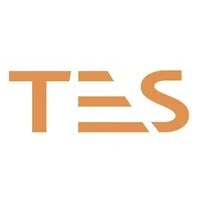AOD LXA Level Crossing Attendant
Initial / Recert
Course Summary
This course is designed to train persons who are responsible for undertaking this course as part of their duties on Network Rail Infrastructure.
It is designed to develop a person’s knowledge, understanding and skills and is therefore particularly suited to persons required to prove their capability in these areas.
Course Aim
The aim of this course is to provide delegates with the skills and underpinning knowledge required to undertake their duties as a Level Crossing Attendant
Pre-requisites & Requirements
Additional Information
All PPE must meet the requirements of NR/L2/OHS/21 and RIS-3279-TOM and as a minimum be equipped with:-
High visibility upper body clothing with reflective tape, with Sentinel Sponsor Logo
High visibility lower body clothing with reflective tape
A safety helmet with Sentinel Sponsor Logo
Safety footwear to support ankle and protective toe cap
Suitable safety eyewear
Suitable safety gloves
What Does a Level Crossing Attendant Do?
The Level Crossing Attendant (LXA) is a crucial safety role responsible for managing vehicle and pedestrian traffic at a level crossing where the railway line crosses a road or path. Their primary duty is to ensure the safe passage of both trains and road users, especially during times when automatic systems are not in use or during engineering works.
What is a Level Crossing Attendant?
A Level Crossing Attendant is a trained and competent individual authorised to operate and manage a level crossing, whether it's an automatic barrier crossing, a user-worked crossing, or a gate-keeper controlled crossing. They act as a vital safety barrier between road traffic and railway movements, ensuring that the crossing is clear for trains and that road users cross safely when permitted. They are often deployed during engineering possessions, when normal crossing operations are suspended or altered.
Key Duties and Responsibilities of a Level Crossing Attendant:
The LXA role demands constant vigilance, excellent communication skills, and strict adherence to safety procedures. Their duties typically include:
Operating Crossing Barriers/Gates: Manually opening and closing barriers or gates to control road traffic flow, allowing trains to pass safely.
Communicating with Signallers/Trains: Liaising directly with the Signaller or other authorised personnel (e.g., PICOP) regarding approaching trains and the status of the crossing.
Controlling Road/Pedestrian Traffic: Directing road vehicles and pedestrians to wait when a train is approaching and signalling them to cross only when safe to do so.
Ensuring Crossing is Clear: Visually confirming that the crossing is clear of all obstructions (vehicles, pedestrians, animals) before a train is allowed to pass.
Maintaining Site Safety: Monitoring the condition of the crossing equipment and reporting any faults or hazards immediately.
Implementing Emergency Procedures: Knowing how to respond quickly and effectively to incidents or emergencies at the crossing.
Maintaining Records: Keeping accurate logs of train movements, crossing operations, and any unusual occurrences.
Where a Level Crossing Attendant can work within TES:
The LXA competency is essential for TES projects that interact with the wider public at specific interface points on the rail network. You might find an LXA working within:
Possession Management: LXAs are frequently deployed during large engineering possessions that involve temporary closures or altered operations of level crossings. They ensure safety at these critical access points.
Permanent Way (P-Way): Supporting track maintenance or renewal projects that require controlled road access over the railway.
Electrification (OLE / 3rd Rail): Ensuring that specialised road-rail vehicles or equipment can safely access the rail infrastructure via level crossings.
Project Delivery Teams: Any project where work intersects with public crossings will require the presence and expertise of an LXA to manage the interface.
Let’s Learn Together
Interested in our NSAR Gold Standard team training your staff?
Fill out some info and we will be in touch shortly!
We can't wait to hear from you!
Explore more of TES
Want to explore more of what TES have to offer? Use the search function below

